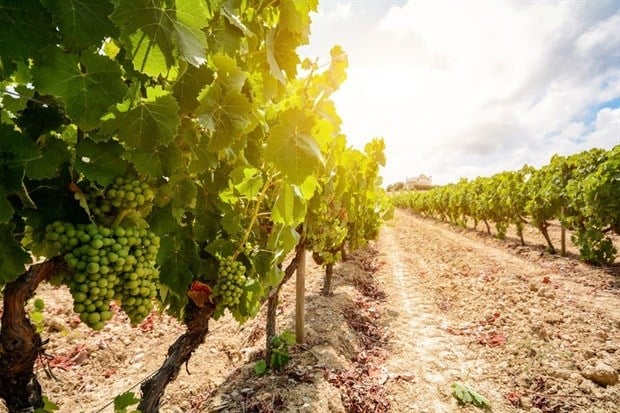
Top stories


EducationFrom adversity to opportunity: African education’s revival strategies
Sanjeev Mansotra 1 day



Marketing & MediaThe Odd Number named Financial Mail AdFocus Mid-Sized Agency of the Year
The Odd Number 2 days

More news












The eight new commitments are built on four key areas: nurturing terroir, valuing people, circular making and responsible hosting. They seek to address material issues facing the Group and the world, such as climate change, human rights and waste. Each pillar includes 2030 goals with measurements to ensure progress is monitored.
This area of commitment focuses on nurturing every terroir and its biodiversity, responding to the challenges of climate change to ensure quality ingredients now and for generations to come.
1. Biodiversity: By 2030, 100% of the Group’s global affiliates will have a strategic biodiversity project.
2. Regenerative agriculture: By 2025, the Group will develop regenerative agriculture pilot projects within its own vineyards in eight wine regions – Argentina, California, Cognac, Champagne, Spain, Australia, New Zealand and China – mimicking natural processes to improve the quality of top soil, watersheds and ecosystems. By 2030, Pernod Ricard will then partner with over 5,000 farmers to share this knowledge further.
This commitment is related to increasing diversity and fairness for all its people and empowering people across its supply chain.
3. Equality and future leadership: By 2022, the Group will ensure equal pay across the business and by 2030, the top management teams will be gender balanced. In addition to which, by 2030, 100% of employees will have received future-fit training at least every 3 years to develop new skills.
4. Shared knowledge and learning: By 2030, the Group will train 10,000 bartenders on the bar world of tomorrow to host consumers in a more sustainable way including being anti-waste and plastic-free.
The world is made of finite resources, under huge pressure. Pernod Ricard says it's committed to minimising waste at every step by imagining, producing and distributing its products in ways that optimise and help preserve natural resources.
5. Packaging and waste: By 2025 Pernod Ricard will ban all promotional items made from single-use plastic and 100% of its packaging will be recyclable, compostable, reusable or bio-based. In addition to which, by 2030 the Group will pilot five new circular ways of distributing wine and spirits and help increase recycling rates in its top 10 largest markets with low recycling levels.
6. Water balance and carbon-footprint: By 2030, Pernod Ricard aims to be water balanced in all high-risk watersheds (like India and Australia), replenishing 100% of water consumption from production sites. In relation to carbon emissions, the company will commit to reducing the overall intensity of its carbon footprint by 50% by 2030 in line with the Science-Based Targets (SBTs) initiative.
Pernod Ricard says it's fighting alcohol misuse in society by taking action on harmful drinking and engaging with its stakeholders for real change.
7. Alcohol misuse: By 2030, every affiliate of Pernod Ricard across the world will have at least one programme to fight alcohol misuse, at scale and evaluated.
8. Responsible party: By 2030, Pernod Ricard will expand its Responsible Party programme globally to reach at least 1 million young adults. Responsible Party was created 10 years ago in partnership with the Erasmus Student Network to raise students’ awareness about responsible consumption, and has reached 400,000 students in Europe since.
In addition to these eight main commitments, as part of the 2030 roadmap, Pernod Ricard has also developed plans to embed a UN Human Rights approach across its value chain, address wastewater and move towards fully renewable electricity.
Vanessa Wright, VP sustainability and responsibility, said, “We know that our customers have now come to expect our brands to be responsible and respectful of the environment – values that have been at the very heart of our business since its inception. These 2030 commitments provide us with a focused framework across our business in helping to address some of the biggest sustainability issues, so consumers can enjoy our products in a convivial and sustainable way.”